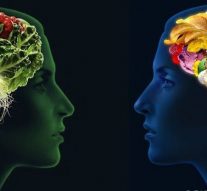Goa is abuzz with excitement as vintage bike and car owners, users, collectors and fans are decking […]

FOODS THAT CAUSE `BRAIN FOG’ Your nutrition is in your hands….By Dr Amit Dias, MD
MIND & BODY, HEART & SOUL, Sep 06- Sep 12, 2025 September 5, 2025World Alzheimer’s Month & Nutrition Week Special
September brings with it two powerful reminders — the importance of healthy eating as we observe the National Nutrition week from September 1-7 and also the Alzheimer’s Awareness Month. In this creative piece, blending the two areas of focus, Dr Amit Dias decodes the word BRAINFOG, shedding light on foods and habits to avoid, while offering clarity on the much necessary information on “how much is too much” for our body to handle. “Your nutrition is in your hands,” he reminds us — a message as vital for preventing memory loss as it is for keeping our minds sharp every day.
THE first week of September marks National Nutrition Week, with the theme “Eat Right for a Better LIFE,” while this month also observes Alzheimer’s Awareness Month, carrying the theme “Ask about dementia, ask about Alzheimer’s” This timely overlap invites us to reflect on a vital question: how do our dietary and lifestyle choices shape not only our physical well-being but also the long-term health of our brain? The progression towards Alzheimer’s disease and other dementias are not confined to old age—they are deeply influenced by habits we cultivate throughout our lives.
The Lancet Commission on Dementia Prevention, Intervention and Care (2020, updated in 2024) highlights a striking finding: nearly 45% of dementia cases could be prevented or delayed by addressing modifiable risk factors such as high cholesterol, obesity, hearing loss, smoking, and poor diet. The message is clear—dementia is not an unavoidable fate. The choices we make every day, from the food we eat to the lifestyles we lead, play a powerful role in protecting our memory and keeping our minds sharper for longer and avoid the brain-fog.
What Makes the Brain Foggy?
Many people today describe a feeling of “brain fog”—a state of confusion, forgetfulness, poor concentration and mental fatigue. While it’s not a disease in itself, it is often a warning sign that the brain is under stress.
For a chance, instead of focussing on what is good for you, this article focusses on what is bad for you. To make it easy to remember the key culprits, let us expand brain fog and look at the evidence behind each.
B – Butter & Saturated Fats
What’s the problem? Foods rich in saturated fats (butter, ghee, fatty meats) raise LDL cholesterol. High cholesterol narrows brain blood vessels, reducing oxygen supply and fuelling tiny strokes that damage cognition.
Evidence: A meta-analysis showed people with the highest intake of saturated fat had a 39% higher risk of Alzheimer’s disease. The revised guideline of Lancet Commission formally included high LDL cholesterol as a new risk factor for dementia.
Do not get the message wrong, do not avoid fat completely. Remember that the brain is 60% fat—but it needs the right fats, like omega-3s, not saturated and trans fats. Lipids (including fatty acids, cholesterol, and complex molecules like phospholipids) make up around 50–60% of the brain’s dry weight.
R – Refined Sugars & excessive Carbohydrates
What’s the problem?
Refined carbs (sweets, white bread, pastries) cause spikes in blood sugar and insulin. Chronically high insulin can damage neurons and increase the risk of dementia. According to the National Institute of Nutrition, we should keep added sugars to less than 20-25 g per day, this amounts to around 5 teaspoons. Free sugar should make up les than 10% of the total energy intake, preferably below 5%. This is the bitter truth about sugar. Sugars are empty calories and do not have any essential nutrients leading to fatty liver, obesity, type 2 diabetes and several other diseases. Though glucose is essential for the brain, excess sugars are counter productive.
Evidence: People with diabetes have up to double the risk of dementia compared to those without. The hippocampus, the memory center of the brain, shrinks in people with uncontrolled diabetes.
A – Alcohol (Excessive Drinking)
What’s the problem? Alcohol in large amounts is neurotoxic. It interferes with neurotransmitters like GABA and glutamate, leading to memory lapses and long-term brain shrinkage.
Evidence: Chronic heavy drinking is linked to “alcohol-related dementia” and increases the risk of Alzheimer’s.
The brain of a heavy drinker can lose up to 1.6% of its volume per year — much faster than normal aging.

I – Instant – Fast & Processed Foods
What’s the problem? Instant noodles, chips and ready-to-eat snacks are loaded with trans fats, preservatives, artificial colourings and excessive salt. These chemicals increase oxidative stress and inflammation in the brain. Food from restaurants tastes good because it contains excess amount of salt and tastemakers. So how much salt is too much. To much salt which means too much of NaCl and sodium increases our blood pressure causing heart disease and affects our brain. The recommendation is not more than 5g of salt per day.
A study conducted by us in Goa revealed that on average Goan consumes around 10-14g per day. Having said this, remember that sodium is also needed for our health and low sodium can lead to hyponatremia. So the solution is to keep a watch and know how much is too much.
Other Toxic culprits:
Monosodium glutamate (MSG): Linked with excitotoxicity in neurons.
Nitrites in processed meats: Form nitrosamines, which damage DNA and brain cells.
Artificial sweeteners: Some studies suggest links to altered gut-brain signalling.
High salt intake not only raises blood pressure but may directly impair cognitive function by reducing nitric oxide in brain blood vessels.
N – Nicotine (Smoking)
What’s the problem? Though it comes from a plant, one cannot classify it as a nutritive item. But in any discussion no brain fog would be incomplete if this culprit is not addressed. Cigarette smoke contains over 7,000 chemicals, including nicotine, carbon monoxide, arsenic and formaldehyde. These toxins damage blood vessels, reduce oxygen delivery and accelerate brain aging.
Smoking is estimated to account for about 5% of global dementia cases. Quitting, even in later life, reduces risk.
F – Fried Foods
What’s the problem? Deep frying creates trans fats and advanced glycation end-products (AGEs). These compounds cross the blood-brain barrier, promoting oxidative stress and amyloid plaque formation — hallmarks of Alzheimer’s disease.
Like glucose and sodium, oil is also essential and provides energy and fat soluble vitamins. Cholesterol is needed in the body. One needs to know when to stop and opt for healthier options. The NIN recommends 20-20g per person per day, which is around 6 teaspoons of oil. If your food is made up of deep-fried items, you will most likely exceed this limit. Repeated frying in the same oil — which is often practiced to save oil — is a bad idea as it releases harmful products bad for our health.
Rotate the oils used – rice bran, soybean, sunflower, sesame, groundnut. Avoid vanaspati, margarine which have higher trans fats. Its useful exercise to measure oil in a spoon rather than pour, steam and grill instead of frying, add nuts and seeds to the food to get the healthy fats necessary for our brain health.
O – Overeating & Obesity
What’s the problem? Excess calories and obesity trigger chronic inflammation, insulin resistance and vascular changes that impair cognition.
Evidence: Midlife obesity increases dementia risk by ~60%.
Fat tissue isn’t just storage—it releases inflammatory chemicals called adipokines that damage blood vessels and neurons. But one needs to have a balanced diet as emphasised earlier and fats are a part of it – it’s the type of fat that matters.
G – Gluten & Highly Refined Grains
What’s the problem? In people with gluten sensitivity or celiac disease, gluten triggers autoimmune inflammation that can affect the brain, leading to brain fog, depression, or even cognitive decline. This is the new bad food on the table.
A strict gluten-free diet in sensitive individuals often improves concentration and memory within weeks.
This September, Your Nourishment is in your HANDS.
A unique competition was held at UHTC St Cruz on the theme “Your nourishment is in your hands’ — where in the participants used mehendi or henna art to spread messages about what makes up a healthy diet. Every day of the week is dedicated to educate patients on dietary approaches to ailments like liver disease, diabetes, hypertension, gout, renal stones, etc. So, as we observe National Nutrition Week and World Alzheimer’s Awareness Month, let us all become aware, understand our limits and take a pledge:
• To eat fresh, balanced, and natural foods.
• To avoid the traps of “BRAIN FOG” foods.
• To stay active, socially connected, and mentally curious.
Because being healthy from the top—starting with the brain—means being healthy in every aspect of life.















